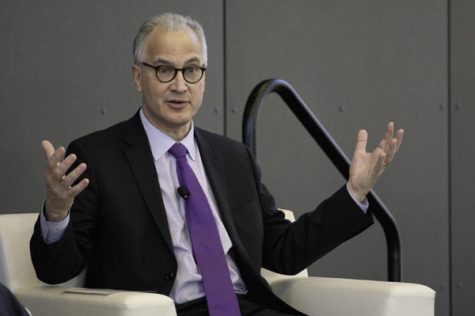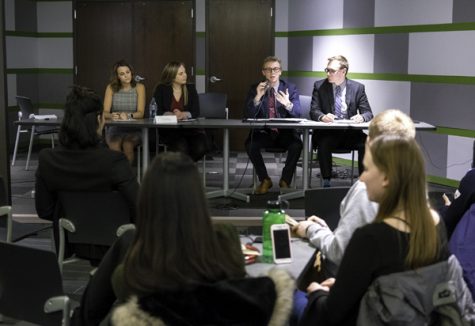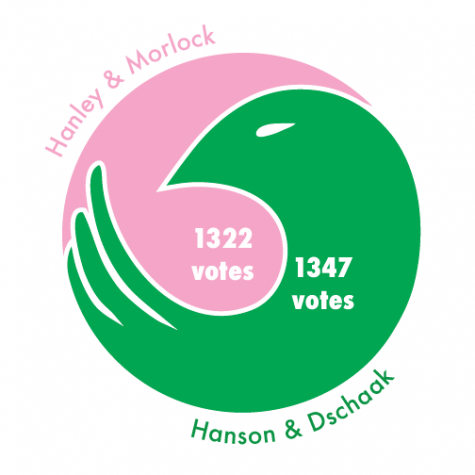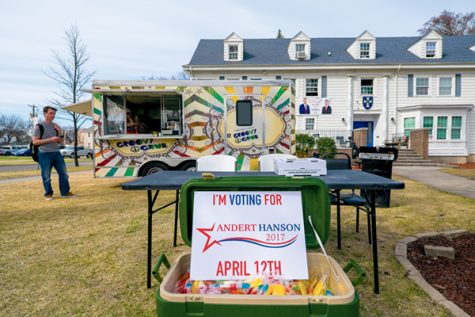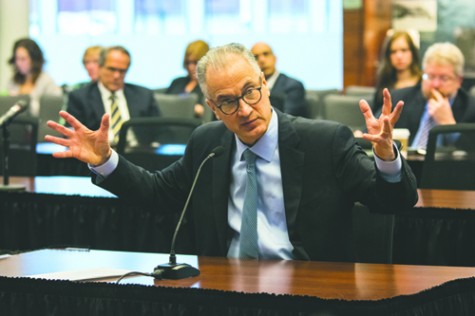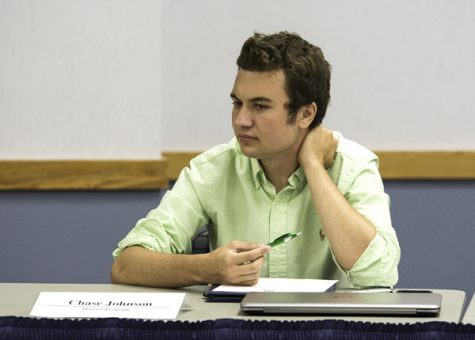The President and the Senate
November 5, 2017
After having last week off from their regular meeting, the UND Student Senate will be returning with a high productivity rate. However, it’s not the senators being productive.
Since August, six of the seven bills and five of the seven resolutions proposed by the Student Senate have been authored by someone from the Student Body Executive Office. All but two pieces of legislation so far this year have been authored by either the Student Body President, the Student Body President, either of the Chiefs of Staff and/or the Treasurer.
This is an unprecedented ratio of the total amount of legislation coming from the Executive Office. Last year, only seven of the 18 bills and two of the 10 resolutions came from the Executive Office. During the 2015-16 school year, it was seven of 17 for bills and six of 14 for resolutions.
If the current trend continues to the end of the year, Student Body President Cole Bachmeier and his team could be responsible for 24 of 28 bills and 20 of 28 resolutions.
The last time the Executive Office was responsible for more than seven bills or resolutions in one year was the 2013-14 school year. During that senate, then-Student Body President Nick Creamer and his administration authored 14 of the total 38 bills and six of the total 18 resolutions. The number of bills was higher, but the ratio was no different than other years.
Bachmeier said this year’s trend can be explained by a standard training period for new senators who are still learning when to speak and propose legislation.
“We’re both trying to motivate senators to have the courage to write them out,” Bachmeier said. “The problem we ran into previously, the first two-three months, no one wrote bills. And then (during) second semester, that’s when we had a bill on the table every week.”
UND Honors Program Student Senator Sarah Strube said the current trend is something the Senate should start working to change. She ran under the Bachmeier-Hanson ticket last spring.
“I know that a lot of the ones that have come from the President’s Office, we have been informed that he has been working with the Senate,” Strube said. “Yes, (the legislation) has come from there, but at the same time too, the President’s Office and the (Executive) Board has really done a great job at reaching out.”
Bachmeier said he sees the student government and its relationships structured like a tree.
“You have the student base here,” Bachmeier said. “That student base is thus represented by student senators, who then can go to us. The senators are out in the field, if you will, getting that informational data. (…) They’re kind of the boots on the ground.”
Some senators have their passions and are able to take on issues themselves. There are also times where senators will approach his team on how to solve issues on-campus.
“(VP Hanson) and I and the Executive Team have access to resources that the Student Senate unfortunately don’t,” Bachmeier said. “We’ve developed the relationships with the administration.”
He went on to say that he will take the senators’ questions to whomever is appropriate to talk to.
“I see us as the advocating body for Student Senate and the Student Senate as the advocating body for the students,” Bachmeier said.
Another element to consider is the personnel of the President’s staff. The President, the Vice-President, the Treasurer, and the President’s Chief of Staff wrote much of their own legislation while they themselves were senators. This means those who run the office are already hyper-familiar with the process and their own powers.
Last spring, Bachmeier’s main opponent was then-Vice President Blake Andert. When the election was over, Bachmeier won the presidency, but Andert’s ticket won 11 of the 20 seats in the Legislative Branch. Bachmeier’s ticket had won only six, leaving him with an undisputed minority.
Despite the initial minority coming in, there is optimism coming from the Union for an already improved relationship between the Senate and the President’s Office.
“A big goal of ours is to try to increase collaboration both in the student body and in the Senate themselves,” Bachmeier said.
Jacob Notermann is a news writer for Dakota Student. He can be reached at [email protected]


